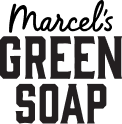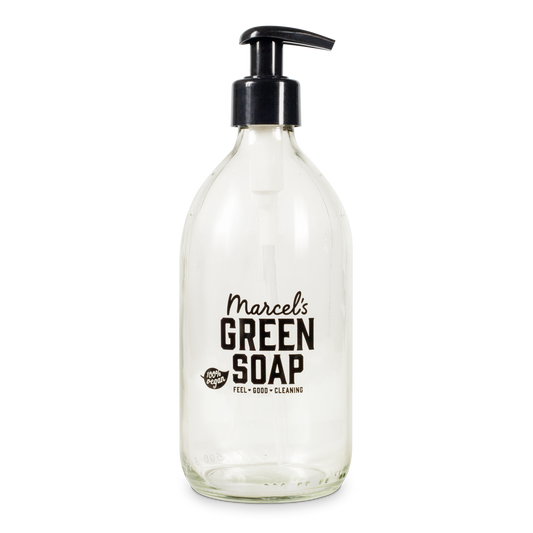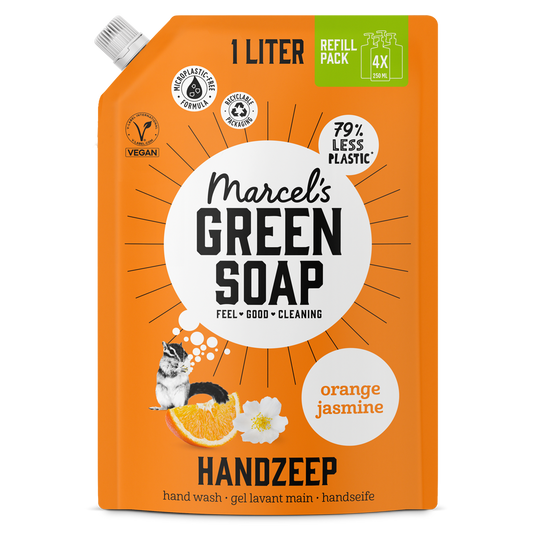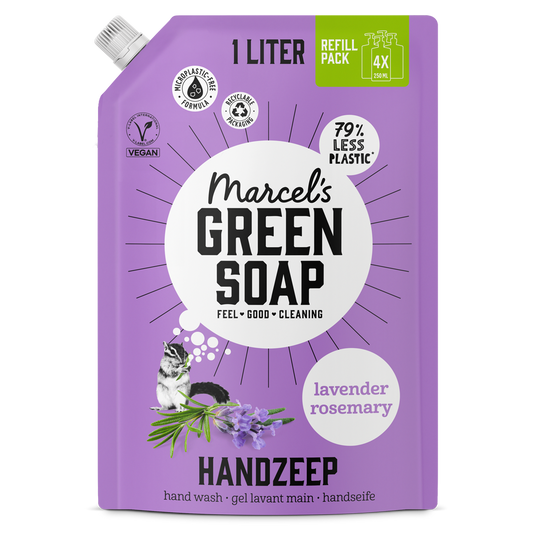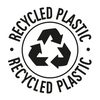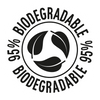The products from Marcel's Green Soap are not 100% natural. Huh, but aren't you guys a sustainable soap brand! Natural and sustainable are often mentioned in the same breath. Yet natural is not always sustainable and vice versa. We explain.
What do 'natural' and 'sustainable' actually mean?
To start with the good news: the supermarket shelf is colouring ever greener. As a consumer, you get more and more choice when it comes to eco-friendly(er) products. But at the same time, it can sometimes cause confusion, because the green terms fly around your ears: natural, sustainable, organic, eco-friendly, pure ... We understand that sometimes you can't see the wood for the trees. So what is the best choice if you have a green heart for the planet?
Because there are no strict rules yet for when you can call something “natural” or “sustainable”, these terms don't really mean that much. Nevertheless, you can generally say that natural products are (largely) made from natural ingredients extracted directly from nature with little or no processing. An environmentally conscious product is produced and used in a way that causes as little harm as possible to people, the environment and society. The ingredients of a product developed with consideration for the planet can be either natural or synthetic.
Natural vs. Synthetic Fabrics
The planet is a wilderness of natural ingredients that you can make all kinds of products from, such as tea, food, clothing, health products, cosmetics, cleaning products and personal care products. Natural ingredients have - yes - naturally occurring properties that can add value to a product. For instance, the ingredients can serve as colouring or fragrance or - in the case of soap - have a soothing effect on the skin. You would say: throw all products full of natural ingredients! But as always “every advantage has its disadvantage” and that also applies to natural ingredients. Not everything Mother Nature has to offer is good for people and/or the environment. And then synthetics offer a good alternative.
“Not everything Mother Nature has to offer is good for people and/or the environment.”
Synthetic substances are man-made substances created by a chemical process that combines different raw materials. Some of these raw materials may have a natural origin, but are no longer traceable to the original substance in the final product, so it can no longer be called a natural ingredient. The big advantage of a synthetic substance is that you can completely customise it, allowing you to take allergens and biodegradability into account, for example.
“You would think that natural products are sustainable by definition. Unfortunately, that is not the case.”
Why is natural not always sustainable?
You would say that natural products are by definition sustainable. Unfortunately, this is disappointing. As indicated earlier, natural ingredients are extracted from nature. And what you take away doesn't just grow back. Nature is not an inexhaustible source from which you can infinitely extract raw materials. To meet the growing demand for natural ingredients, large areas of forest and rainforest are cut down to make room for plantations and agriculture. This is at the expense of biodiversity and the habitat of indigenous species. Added to this: you need a lot of most natural ingredients to have the same effect as a mimicked synthetic substance.
“Nature is not an inexhaustible source from which you can extract raw materials infinitely.”
Why isn't Marcel's Green Soap 100% natural?
We consciously choose to substitute natural ingredients - when necessary - for synthetic alternatives, when they are less environmentally harmful. For example, our perfumes are synthetic rather than natural, as this gives us more control over quality, allergens and biodegradability. Moreover, you need a lot of natural fragrances to experience the same fragrance intensity as a small amount of synthetic perfume. A shame, right? By the way, we do like to be inspired by nature for the fragrance combinations!
At least 92% biodegradable
Because we formulate the substances ourselves, we have an influence on the biodegradability of our soaps. We want to avoid harmful substances leaving your house through the shower drain, which is why all our products are at least 92% readily biodegradable. Natural ingredients are by no means always biodegradable (such as essential oils), so they can wash into the environment as pollutants after a shower.
Microplastic-free formula
Microplastics are a relatively new environmental problem. Microplastics are very small pieces of plastics created by the disintegration of stray plastic and the wearing out of car tyres and clothing. Sometimes microplastics are even deliberately added to a formula to improve its appearance, structure or function. Those bits of plastic eventually end up in our ecosystem. Their effect is increasingly being demonstrated scientifically, such as here. That it is a growing problem is certain. And that is why all Marcel's Green Soap products have a microplastic-free formula.
Recycled and recyclable plastic
Our products are packaged in recycled and recyclable plastic. The bottles are made of recycled plastic. This plastic is also recyclable, as the labels are easily removable. So the recycled plastic can be used again and again. It is important that you dispose of Marcel's Green Soap bottles in your plastic waste!
Refillable
Marcel's Green Soap is at the forefront when it comes to refills. More and more of our products are refillable. Why is this so sustainable? A refill pack has a large content that is compactly packed, reducing the need for freight and packaging. It also helps to reduce waste, because you don't have to throw away that nice bottle of Marcel's Green Soap when it's empty. Besides, a refill is relatively cheaper than a new bottle. Win-win!
“We are always looking for ways to make our products even better, for you and the planet.”

